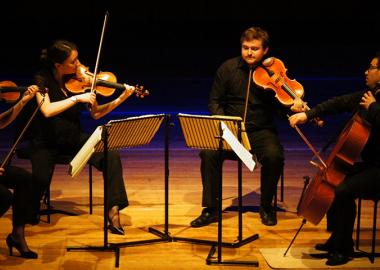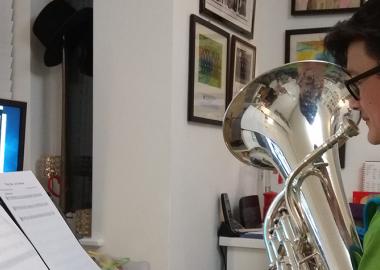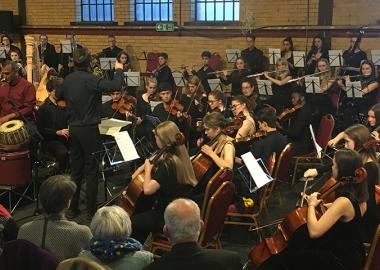Following on from a Making Music promoters event, Barbara Eifler, Making Music Chief Executive, recaps the importance of promoters and artists managers working together and understanding each other.
Around 400 of Making Music’s members don’t play or sing themselves, but present professional musicians, soloists or small ensembles in a concert or in a festival.
These hobby promoters do incredible work bringing performers to areas where there is often no other access to professional music events or creating local festivals of enormous energy and high- quality activity, putting their area on the map, all whilst being volunteers.
Many of their practical needs overlap with those of Making Music’s performing groups – insurance, for instance, PRS, and many aspects of running a small charity (as they mostly are).
But there are differences and so Making Music facilitates, amongst other things, meetings specifically for promoters, including, a few weeks ago, an online encounter with some of the artists’ managers, members of IAMA, the International Artist Managers’ Association, who look after many of the musicians our promoters engage.
'These hobby promoters do incredible work bringing performers to areas where there is often no other access to professional music events or creating local festivals of enormous energy...'
It was a most illuminating and positive conversation which proved yet again how helpful it is to simply talk to and learn more about each other!
Many Making Music promoters have been going for years or decades; their programmers not only have a deep knowledge of the artists they present, but have often developed relationships with those artists. So should they still be talking to their manager as well, or instead?
Artists managers encourage that – for very good reasons. They are often the ones with the full overview of an artist’s commitments and may also be in conversation with other promoters about their artists, conversations which the artists themselves may not yet know about. Talking directly to an artist, therefore, could ultimately lead to complications and frustration for the promoter.
But that’s not the only way artist managers add value to the relationship between promoters and artists. Is the artist slow in returning necessary materials or responding to requests? Well, the artist manager is that middle person who may either already have the relevant information (e.g. biography, photos, dates) or clearly has an interest in getting a timely response from the artist so they don’t lose a contract which could benefit them both!
Many other topics were discussed – from template contracts to videos, hospitality to cancellations, diversity to publicity material, with everybody agreeing at the end how useful it had been.
So, what are the next steps?
As usual, regular exchanges of information are a no brainer, perhaps further meetings or exchanges of newsletters/articles.
And for promoters to find out who represents whom, IAMA has collaborated with others to publish an online directory CMA (Classical Music Artists); managers are also listed on the IAMA website or on an artist’s own website. For artist managers to find our promoters, they can search Making Music’s Find a Group and they may also wish to suggest artists for the currently printed, but soon-to-be-digital-only Selected Artists Guide.
'There is energy for taking new ideas forward and both sides look forward to continuing conversations and many more fantastic concerts as a result...'
More ambitiously, both promoters and artists would benefit from co-ordinating regional mini-tours, making smaller venues worthwhile for musicians and potentially enabling promoters to book more artists at an affordable fee, as well as enhancing the potential for effective promotion.
There is energy for taking new ideas forward and both sides look forward to continuing conversations and many more fantastic concerts as a result, all over the UK.
Find out when the next promoter takes place by keeping an eye on our events page.











